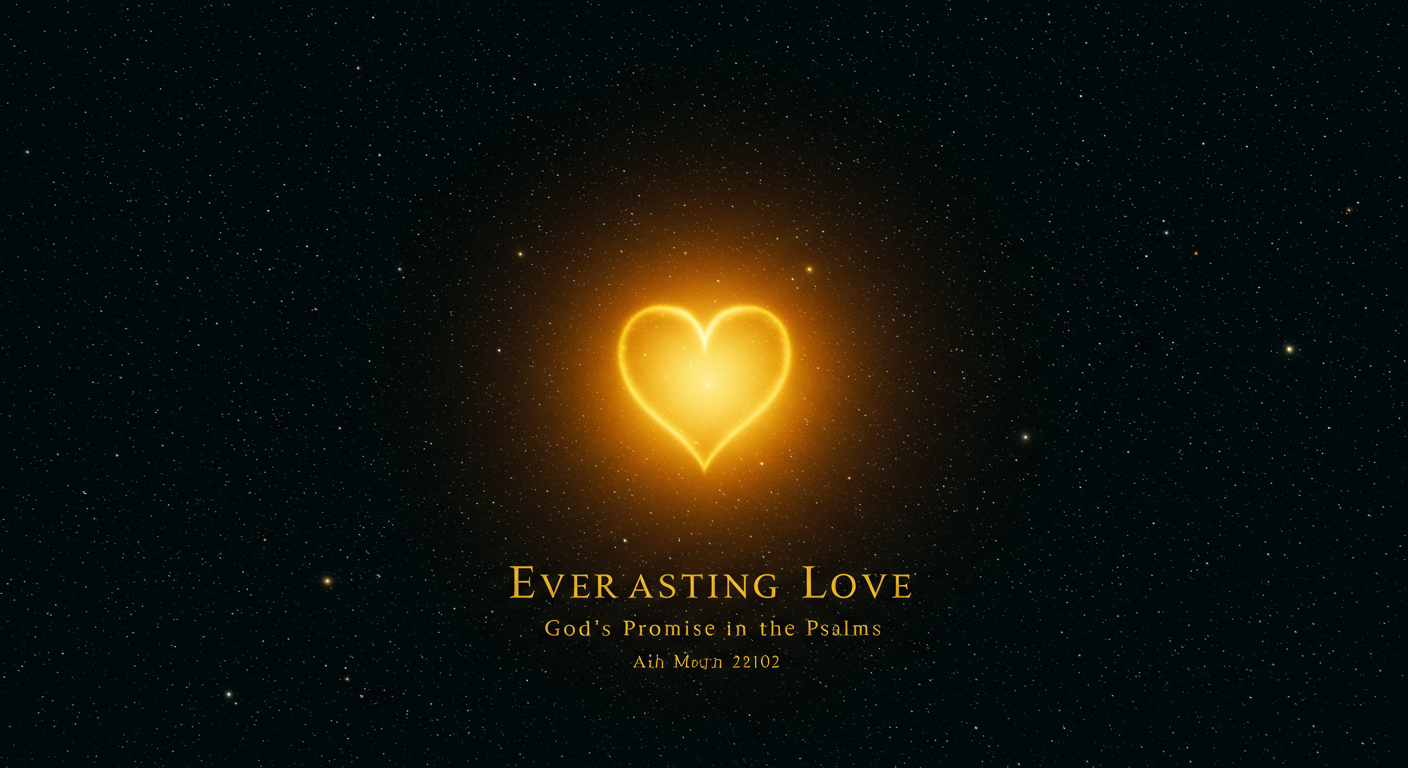God’s Mercy and Forgiveness in Psalm 103:8–12
Hey there! Let’s dive into something really beautiful and profound—Psalm 103:8–12. This passage is a stunning piece of poetry from the Bible that encapsulates God’s mercy and forgiveness like few others can. Let’s uncover what makes these verses so moving and, hopefully, let them speak to you just as they have to countless others over centuries.
What Makes Psalm 103:8–12 So Special?
You know those pieces of writing that just seem to seep into your soul? Psalm 103:8–12 is one of those. In just a few verses, the psalmist, traditionally thought to be King David, paints a portrait of God’s compassionate essence. Reading it feels like getting a warm embrace from a friend who assures you things are going to be okay.
The Text Itself
First, let’s take a look at the verses:
“The Lord is compassionate and gracious, slow to anger, abounding in love. He will not always accuse, nor will he harbor his anger forever; he does not treat us as our sins deserve or repay us according to our iniquities. For as high as the heavens are above the earth, so great is his love for those who fear him; as far as the east is from the west, so far has he removed our transgressions from us.”
You can find them here.
Understanding God’s Mercy and Forgiveness
At the heart of these verses lies a theme that is both simple yet incredibly profound: God’s mercy and forgiveness. Each line unfurls like a piece of beautiful fabric, displaying God’s love in ways that are meant to be both felt and understood.
Compassionate and Gracious
The very first line tells us something almost revolutionary. “The Lord is compassionate and gracious, slow to anger, abounding in love” (Psalm 103:8). Here, the nature of God is depicted as patient and overflowing with love, rather than being quick to judge or punish. Isn’t it reassuring to know that divine patience is prioritized over wrath? It kind of shifts how we perceive the divine, doesn’t it?
Anger That Doesn’t Last
Moving on to Psalm 103:9: “He will not always accuse, nor will he harbor his anger forever.” It’s almost as if the psalmist is pointing out that while human anger can be biting and long-lasting, God’s anger is… well, not like that at all. There’s grace embedded even in how God’s anger is described.
Not Repaying as Our Sins Deserve
Talk about a relief, right? Psalm 103:10 explains that “he does not treat us as our sins deserve or repay us according to our iniquities.” Imagine if every mistake or misstep you made was brought up time and again. How exhausting and defeating would that be? But this verse tells us that’s not how God works. It’s more of a gentle reminder than a ledger of our failures.

The Vastness of God’s Love and Forgiveness
The next verses take us even deeper into the mystery and magic of God’s mercy and forgiveness by measuring them in almost cosmic ways.
Love as High as the Heavens
In Psalm 103:11, we read, “For as high as the heavens are above the earth, so great is his love for those who fear him.” It’s hard to even fully digest this imagery, isn’t it? It’s like standing on the edge of a cliff and looking out over the ocean, knowing the water stretches far beyond what’s visible.
Sins Removed as Far as East is from West
Finally, Psalm 103:12 beautifully reveals, “As far as the east is from the west, so far has he removed our transgressions from us.” Try to fathom this: east and west never meet. It speaks to the profound and complete separation of our sins from us, thanks to God’s mercy and forgiveness. Wow.
Why Does This Matter?
In a world that’s often focused on tit-for-tat and balancing scales, Psalm 103:8-12 offers a more hopeful, loving approach. It suggests a kind of eternal optimism that’s not often associated with divine laws and judgments.
Emotional and Spiritual Resilience
Imagine the psychological and emotional freedom we can gain knowing that mistakes and failures don’t define us forever. Sure, life has its ups and downs, but the idea that divine mercy is patient and understanding can be a marvelous source of emotional resilience.
Fostering Personal Relationships
This understanding of God’s mercy and forgiveness can also transform how we interact with each other. If divine love is unending and merciful, maybe we’re called to practice this in our own lives, too. Grudges and anger suddenly seem less potent when viewed through this lens.
Living Day-to-Day with God’s Mercy and Forgiveness
From the mundane to the extraordinary, the teachings encapsulated in these verses can have a practical daily impact.
Mindfulness and Renewal
For one, it’s a call to practice mindfulness. Taking a step back to reflect on this vast love and mercy lets you renew your perspective daily. It can be as simple as a quiet morning meditation, opening yourself up to this divine compassion, or a pause in the day when things get a bit too hectic.
Encouraging Forgiveness in Others
Let’s not keep this understanding to ourselves. Sharing this perspective on forgiveness and mercy can be an encouraging way to uplift others. It could be in conversations, in how you treat people around you, or even in the stories you choose to share with your peers.
Embracing Imperfection
Lastly, it encourages us to embrace our imperfections, to accept that slipping up is part of being human. With an understanding of such grace, we can be kinder to ourselves, and in turn, kinder to others.
Reflective Practices Inspired by Psalm 103:8-12
Here are a couple of ways you might incorporate these insights into your own life:
- Journaling: Reflect on the week that’s passed and think about how mercy played a part in it, whether divine or personal. How can you extend it further next week?
- Meditative Reading: Spend time with these verses, maybe a minute or two a day, letting them wash over you.
- Gratitude Lists: Each day, jot down a few things you’re thankful for, with a focus on forgiveness you’ve experienced, given, or received.
- Community Discussions: Invite family or friends over for a discussion about these verses. You’d be surprised at how others perceive mercy and forgiveness, and it can be incredibly enlightening.
Final Thoughts
God’s mercy and forgiveness, as portrayed in Psalm 103:8-12, is a gentle reminder that love and compassion reign supreme. Understanding and internalizing these verses can be a source of incredible comfort both spiritually and emotionally. Let’s carry this light with us, sharing it with others along the way.
Explore More
For further reading and encouragement, check out these posts:
👉 7 Bible Verses About Faith in Hard Times
👉 Job’s Faith: What We Can Learn From His Trials
👉 How To Trust God When Everything Falls Apart
👉 Why God Allows Suffering – A Biblical Perspective
👉 Faith Over Fear: How To Stand Strong In Uncertain Seasons
👉 How To Encourage Someone Struggling With Their Faith
👉 5 Prayers for Strength When You’re Feeling Weak

📘 Jesus and the Woman Caught in Adultery – Grace and Mercy Over Judgement
A powerful retelling of John 8:1-11. This book brings to life the depth of forgiveness, mercy, and God’s unwavering love.
👉 Check it now on Amazon
As a ClickBank Affiliate, I earn from qualifying purchases.
Acknowledgment: All Bible verses referenced in this article were accessed via Bible Gateway (or Bible Hub).
“Want to explore more? Check out our latest post on Why Jesus? and discover the life-changing truth of the Gospel!”








